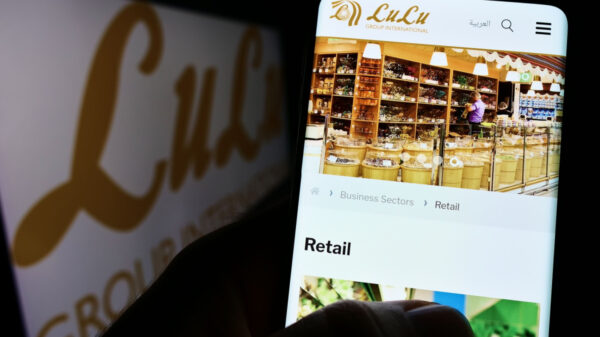Facebook scammers have been scamming Middle East retailers with ads that promise investment opportunities.
In this latest disclosed campaign, Group-IB researcher discovered ads placed in English, Arabic and Spanish. On the Arabic-language scam ads and websites created for this campaign, users were enticed with claims that they could earn millions by investing $200.
Clicking on the ad led users to a scam page containing the logo and branding of a prominent company, which requested the victims’ names, email addresses and phone numbers.
This would be followed by daily emails from a supposed trading portal encouraging them to invest more and calls to pressure victims to make deposit funds.
Researchers from Group-IB claimed that users frequently complained that representatives of the portal stopped communicating once they transferred money, and users are also blocked on messaging platforms once they request a refund.
Head of Group-IB’s digital risk protection analytics team for the Mea region, Sharef Hlal, said: “We note the ever-increasing number of retail investors worldwide, as both wealthy, middle-class and even low-income individuals look to put their income to work, especially with the growing proliferation of investment apps and portals available online,” he says.
“Middle Eastern countries are renowned for their prosperity and the pace of their rapid economic development: scammers are attempting to exploit these trends. The scammers impersonated well-known, recognizable companies that would be popular with potential investors, given their significant market presence and strong economic results.”
Research from Group-IB and the UAE Cybersecurity Council found that the campaign, which ran last December, included 884 unique scam pages, with 60 per cent of them targeting users from the Mea region.
This latest campaign is part of a broader trend. Earlier this year, researchers that scam websites masquerading as reputable brands from the Middle East and Africa soared by 135 per cent last year.
Vice president of intelligence operations at the retail and hospitality at non-profit cyber security organisation ISAC, Bryon Hundley, said: “Brand impersonation is among the top challenges facing cybersecurity teams at consumer companies, and is a prevalent tactic used in credential harvesting, which often ranks as the most common attack type reported by RH-ISAC members.”
Brand impersonation is often the first step in a more complex cybercrime operation, and usually the starting point for an enterprise or customer fraud scheme, Mr Hundley added.













